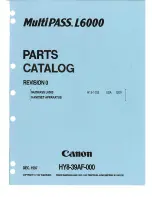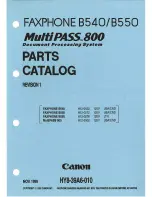Reviews:
No comments
Related manuals for Elastica

MultiPASS L6000
Brand: Canon Pages: 39

MultiPASS 800
Brand: Canon Pages: 103

107-1
Brand: Singer Pages: 8

43-3804
Brand: Radio Shack Pages: 36

10067010
Brand: Kärcher Pages: 55

UTB 250 A1 - 3
Brand: UNITED OFFICE Pages: 44

T981
Brand: Tennant Pages: 41

66-8
Brand: Singer Pages: 25

BR 90 R
Brand: Kärcher Pages: 15

HZL-30Z
Brand: JUKI Pages: 20

Creative Spirit Plus SA2200
Brand: Simplicity Pages: 36

MO-104DN
Brand: JUKI Pages: 32

M-1 Series
Brand: JUKI Pages: 15

LU-2860
Brand: JUKI Pages: 2

MO-1200QVP
Brand: JUKI Pages: 88

LU-2220N-7
Brand: JUKI Pages: 36

LK-1903A
Brand: JUKI Pages: 12

LS-2342
Brand: JUKI Pages: 31






























